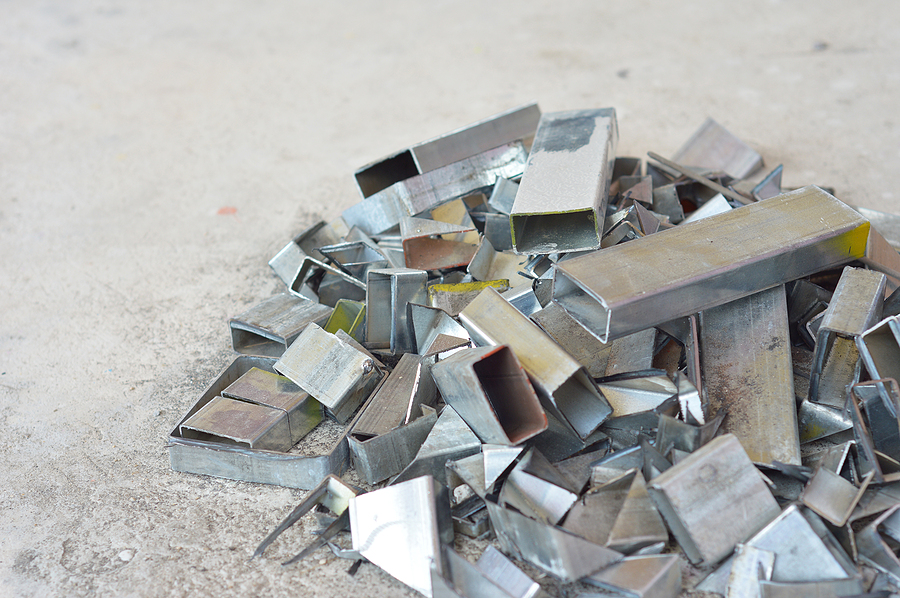Welcome to the world of scrap metal recycling – a domain where waste translates into wealth. In this expansive industry, metal recyclers like you and I can find a profitable, environmentally friendly business model waiting to be explored. Understanding scrap metal prices and how to maximize your earnings is key. But don’t worry, it’s not as daunting as it may seem.
This blog post will provide you with a trove of pro tips to help you navigate the scrap metal recycling landscape and turn your metal scraps into gold. So, whether you’ve been in the business for years or are just getting started, you’re in the right place. Let’s dive in and uncover the secrets of making the most out of your scrap metal recycling venture.

Start By Knowing Your Metals
The first and most crucial step towards maximizing profit in scrap metal recycling is knowing your metals. As an industry, metal recycling deals with a wide variety of materials, each with its own specific properties and value. Ferrous and non-ferrous metals are two main categories of scrap metal that are essential to understand in the world of recycling.
Ferrous metal refers to any metal that contains iron, making it susceptible to rust and corrosion. Some common examples of ferrous metals include steel, carbon steel, cast iron, wrought iron, and stainless steel. These types of metals are typically used in construction, manufacturing, and transportation industries due to their strength and durability.
Nonferrous metals, on the other hand, do not contain iron and are not prone to rust or corrosion. This makes them more valuable in recycling as they can be recycled repeatedly without losing any of their valuable properties. Some common examples of nonferrous metals include aluminum, copper, bronze, brass, lead, zinc, and nickel. These types of metals are commonly used in electrical wiring, plumbing, electronics, and automotive industries.
From ferrous to non-ferrous metals, copper to aluminum – understanding the differences between these materials and their respective market values will be key to your success. Be sure to do your research and stay updated on the current market prices for various metals in your area.
Sort Your Scrap
Sorting your scrap metal may seem like a tedious task, but it can make a world of difference when it comes to profit maximization. By separating ferrous from non-ferrous metals, and further categorizing them based on type and grade, you’ll be able to negotiate better prices with scrap yards. Additionally, sorting your scrap metal means that you can sell each category separately, maximizing your earnings in the process.
Network and Build Relationships
The saying “it’s not what you know, it’s who you know” holds true in the scrap metal recycling world as well. Networking with other metal recyclers and building relationships with scrap yards can help you gain valuable insights into the industry, stay updated on prices, and potentially negotiate better deals. Attend industry events, connect with other metal recyclers online, and don’t be afraid to reach out to scrap yards directly. These connections can prove invaluable in your quest for maximizing profit in scrap metal recycling.
Stay Informed
As with any industry, staying informed is the key to success in scrap metal recycling. Keep an eye on market trends, understand global economic factors that can impact prices, and stay updated on regulations related to metal recycling in your area. By being aware of these important factors, you’ll be able to make informed decisions and stay ahead of the game in this competitive industry.
Conclusion
With these pro tips in your arsenal, you’re well on your way to maximizing profit in scrap metal recycling. Remember to know your metals, sort your scrap, network, and stay informed to stay ahead of the game. With dedication, hard work, and a bit of luck, you can turn your scrap metal recycling venture into a successful, profitable hobby.
Whether you’ve been in the business for years or are just getting started, continue to work towards a sustainable future while also reaping the rewards from your efforts. Contact Zore’s Indy at 317-247-8484 to hear how much our Indianapolis scrap metal recyclers will pay you for those metallic treasures you call junk. If recycling a scrap automobile, we provide free junk car removal services.
Related Posts:
Green Business Solutions: Why Investing in Scrap Metal Recycling Services is a Win
What You Need to Know Before Selling Your Scrap Copper
7 Tips for Selling Your Scrap Metal Responsibly
